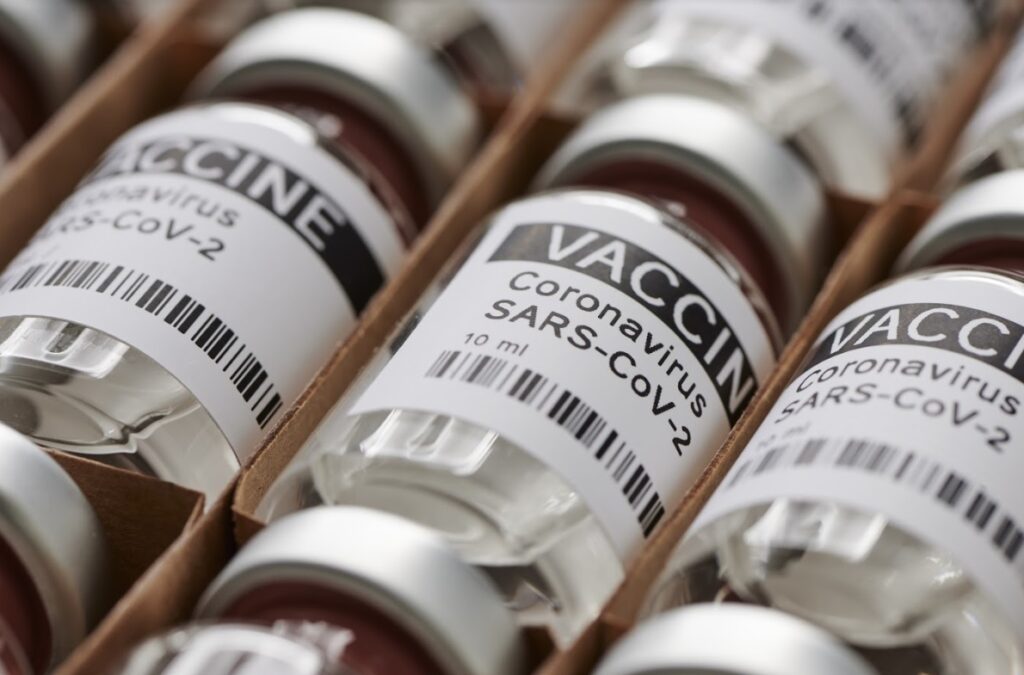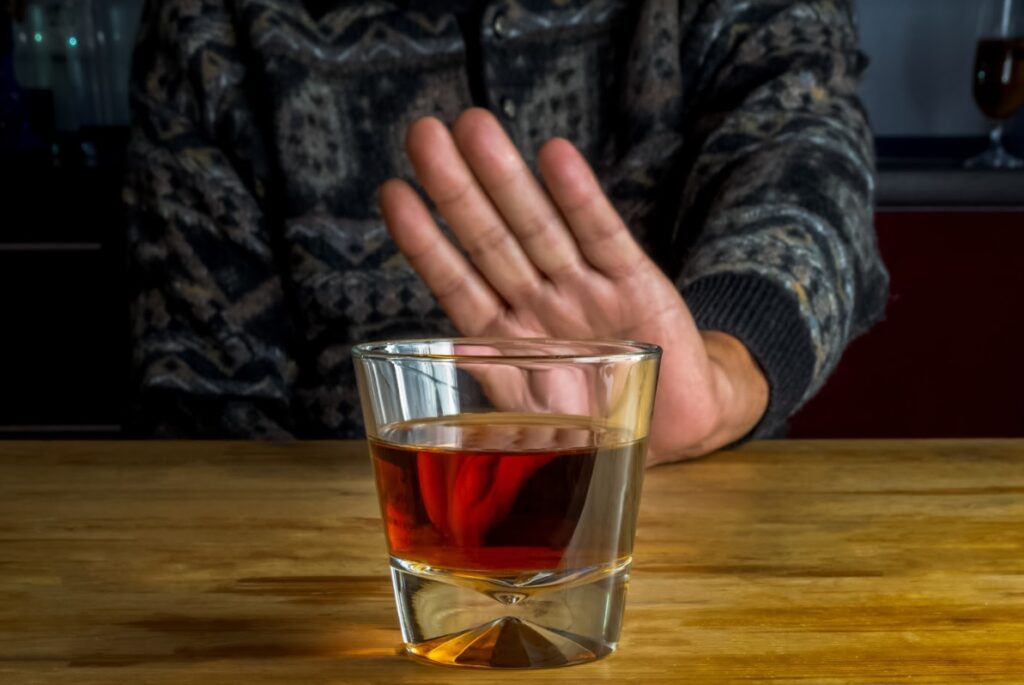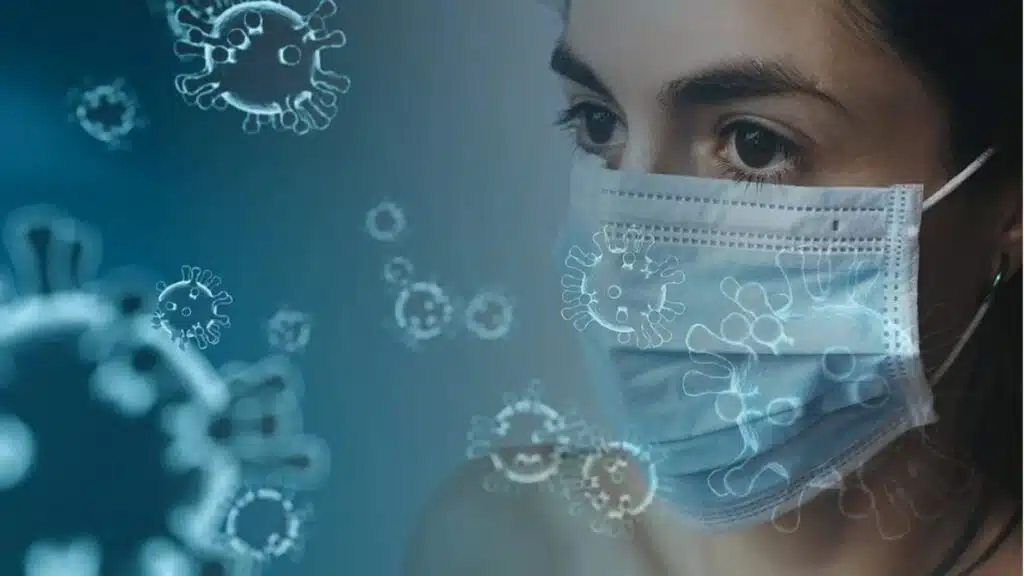The Covid-19 virus outbreak has made us all reconsider our daily routines. Over the last few months, there has been a significant shift in people’s attitudes toward health. People are becoming more mindful and conscious, attempting to adopt healthier lifestyles.
If you are about to be injected or are thinking about it, we are sure you have several questions. However, one frequently asked question is: Can You Drink Alcohol After Taking The Covid-19 Vaccine? This article will provide you with an answer to that question.

The Current Situation
The development of vaccines against Covid-19 has provided relief to people worldwide. Many countries have returned to normal operations. The Russian government advised its citizens to abstain from alcohol two weeks before and six weeks after receiving a vaccination, prompting people worldwide to speculate about the efficacy of vaccines.
Those who had planned to spend time with friends, family, and loved ones were left disappointed. In a nutshell, the answer to whether it is safe to drink alcohol before or after getting vaccinated is yes and no. Please continue reading to find out more about it.
A Brief Introduction to Covid-19
Coronavirus disease (COVID-19), according to the World Health Organization, is an infectious disease caused by the SARS-CoV-2 virus. Officials had reported the first case of Covid-19 in December of 2019. Experts believe that this virus began in an animal and then mutated to cause illness in humans. Researchers currently believe that the coronavirus spreads through droplets and virus particles released into the air when an infected person breathes, talks, laughs, coughs, or sneezes. Larger droplets likely fall to the ground in a matter of seconds. However, tiny infectious particles can linger in the air and accumulate in enclosed spaces, mainly in places of mass gatherings, and ventilation is inadequate.
People usually develop symptoms two to fourteen days after being exposed to the virus. A person infected with coronavirus is contagious two days before symptoms appear and remains contagious for 10 to 20 days after the virus gets detected in their body. Some people infected with the virus may exhibit mild to no symptoms. It may also affect some people severely, resulting in respiratory failure, long-term lung, and heart muscle damage, nervous system issues, kidney failure, or death.
We recommend you to see your doctor if you have any symptoms and buy a rapid antigen test kit so that you can do it immediately after the first symptoms appear. The sooner you can isolate yourself from your loved ones, the better the chance that you will not infect anyone and the disease will be cured faster.
Vaccines and How Do They Work?
The United States Food and Drug Administration (FDA) has approved several COVID-19 vaccines for emergency use in specific age groups. The Centers for Disease Control and Prevention (CDC) also highly recommend it. The following vaccines are available in the United States: Pfizer-BioNTech (ages 5-11), Pfizer-BioNTech (ages 12+), Moderna (ages 18+), and Johnson & Johnson/Janssen (ages 18+).
When a germ or virus enters our bodies, it multiplies and attacks our system, resulting in an infection that leads to illness. Our immune system employs a variety of tools to combat a disease. Different vaccines work in different ways to provide the body with the best possible protection against Covid-19. Nonetheless, every vaccine introduces the virus into our bodies and teaches them to remember it. The body stores a few T-lymphocytes known as “memory cells,” which activate quickly if the body reencounters the same virus. When B-lymphocytes detect familiar antigens, they produce antibodies to attack them.

Common Side Effects Of Covid-19 Vaccines
After receiving the covid vaccine, some people may experience a few side effects. However, there is no need to be concerned because these side effects indicate that our body is building protection. These adverse effects may impair a person’s ability to perform daily tasks. Nonetheless, they should dissipate in a few days. On the other hand, the vaccines may have little to no side effects in some people. Regardless of how your body reacts to the vaccines, you need to know that they are doing their job. Here are a few of the most common side effects seen in people after vaccination.
On the site of vaccination:
- Pain
- Redness
- Swelling
Some of the other side effects:
- Tiredness
- Headache
- Muscle pain
- Chills
- Fever
- Nausea
How Does Alcohol Affect The Immune System?
The relationship between alcohol and immunity is fascinating. Although we are well aware that alcohol harms our immune system in the long run, recent research suggests that light to moderate alcohol consumption may have some health benefits. Nonetheless, there is insufficient evidence to support these claims, and scientists do not fully comprehend them.
Excessive alcohol consumption, also known as “alcohol abuse,” has been shown to weaken the immune system, making it vulnerable to infections, viruses, and illnesses. A healthy immune system can recognize diseases and fight them with various tools. When the immune system is compromised, it may take longer to identify these invaders (infections, viruses, and so on) and develop a response to them.
Can You Drink Alcohol After Taking The Covid-19 Vaccine?
Alcohol harms our bodies, and mental health is known to all. Temporary adverse effects of alcohol include drowsiness, giddiness, slurred speech, and impulsive behavior. On the other hand, long-term effects include pancreas inflammation, liver disease, weakened immune system, heart-related health issues, and more.
People are questioning whether or not it is safe to drink alcohol before or after getting vaccinated because they believe it will interfere with the protection provided by the vaccines. While this is a valid concern, government officials did not address it in their covid vaccine guidelines. Neither did the clinical trials for various covid-19 vaccines consider the effect of alcohol on vaccine response. However, experts believe there is nothing to worry about if you avoid binge or heavy drinking before or after getting vaccinated.
The Centers for Disease Control and Prevention (CDC) defines binge drinking as five or more drinks for men (on a single occasion) and four or more drinks for women (on a single event) in less than 2 hours.
Heavy drinking is men consuming 15 or more drinks per week and women consuming eight or more drinks per week.

What Are The Dangers If You Drink Alcohol Before And After The Covid-19 Vaccine?
Although the effects of drinking alcohol before or after receiving a covid shot are not thoroughly studied, experts believe that light to moderate drinking is permissible. Regardless, people should avoid binge or heavy drinking.
Moderate drinking is two or fewer drinks per day for men and one or fewer drinks for women. Let’s take a look at what might happen if you push the limits and drink a little too much alcohol before or after getting the shot.
The Dangers Of Drinking Before The Shot
It is unlikely that consuming light to moderate amounts of alcohol a few days before or the night before receiving the shot will impair your immune system to the point where it interferes with the vaccine’s response.
However, if you partied a little too hard and ended up with a hangover on the day of receiving your shot, you may find it difficult to distinguish between the responses caused by the vaccine and those caused by the night before. Excessive alcohol consumption may exacerbate the side effects of vaccines. Moreover, a single binge-drinking episode can impair immune system function for up to 24 hours.
The Dangers Of Drinking After The Shot
It’s unlikely that toasting your newfound immunity against covid after getting a shot will interfere with the vaccine’s effectiveness. However, it is best to avoid alcohol for at least 2-3 days after getting vaccinated. If not, make sure you don’t go beyond moderate drinking limits.
Excessive drinking is likely to weaken your immune system, reducing your body’s ability to fight infection and heal wounds. If you are a regular drinker, your immune system has probably suffered some damage already. As a result, to ensure that your body responds well to the vaccine, it is best to keep your immune system in tip-top shape by abstaining from alcohol.
Can You Drink Alcohol After The Second Dose?
You may be wondering why the second dose is required. The process of administering multiple doses is known as “prime-boosting.” The first dose teaches the immune system to recognize the virus, and subsequent doses challenge the immune system, strengthening it. This method is beneficial for maximizing protection against viruses such as Covid-19.
It is best to avoid alcohol for a few days before and after receiving the second dose. However, drinking a couple of glasses of alcoholic beverages is unlikely to reduce the vaccine’s effectiveness. With that said, if you drink heavily after receiving the second dose, it may weaken your immune system, impairing the vaccine’s efficacy and exacerbating the side effects caused by the vaccine.
Can You Drink Alcohol After The Booster Shot (Third Dose)?
Although vaccines work perfectly to reduce the chances of contracting the Covid-19 virus, recent data suggests that their ability to prevent infections and illnesses deteriorates over time, particularly in people over 65. As a result, the appearance of booster shots is critical. Furthermore, the spread of variants such as Omicron highlights the importance of vaccinations and booster shots. Clinical trials have shown that a booster shot significantly strengthens the immune system’s ability to combat Covid-19.
Clinical trial data showed that a booster shot increased immune response in trial participants who had completed a Pfizer-BioNTech or Moderna primary series six months prior or received a J&J/Janssen single-dose vaccine two months earlier. Clinical trials for Pfizer-BioNTech and J&J/Janssen revealed that a booster shot helped prevent severe disease.
There is no such thing as a prohibition on drinking alcohol after receiving the booster shot. However, if you must drink, officials advise you to do so in moderation. Currently, there is no solid evidence proving that drinking alcohol reduces the effectiveness of the booster shot. Failure to stay within the limits of moderate drinking or to indulge in heavy drinking, on the other hand, may result in trouble. Excessive alcohol consumption can weaken the immune system, making people more susceptible to infections and illnesses.

The Importance Of Being Safe
Over the last few months, we’ve seen Covid-19 wreak havoc all over the world. It is safe to say that it has taught us an essential lesson about the importance of developing healthy habits to stay safe and protected. Although the availability of several vaccines has provided significant relief in our lives, we must still proceed with caution because the future of this virus is unknown. To reclaim our long-lost sense of normalcy, we must make the necessary sacrifices and take care of our health in any way we can.
Getting vaccinated is the first step toward gaining protection against Covid-19. Completing your vaccinations will provide your immune system with the necessary strength to combat the virus. Next, try to avoid large crowds as much as possible and keep a safe distance from others. Even if the person on the other side is unaffected, you must maintain a minimum one-meter length. Furthermore, it is critical to properly sanitize your hands and wear a mask at all times. It is also vital to change and modify your diet, incorporate exercise, and sterilize your home regularly. Immunocompromised (having a weakened immune system) people should take extra precautions because they are at a higher risk of contracting the virus and developing severe illnesses.
Closure
Can you drink alcohol after taking the Covid-19 vaccine? Yes, as long as you don’t go too far. Although the clinical trials for the Covid-19 did not take alcohol consumption into account, it is safe to say that it is not entirely harmful. There is no evidence to suggest that drinking alcohol before or after getting vaccinated reduces the efficacy of the vaccines.
To be on the safe side, we recommend that you refrain from drinking alcohol for a few days before and after getting vaccinated. It is crucial if you are a heavy drinker because your immune system is already compromised. Those with any known COVID-19 risk factors, such as diabetes or heart disease, should drink even less. Although toasting an alcoholic beverage to your newfound immunity may sound appealing, it is best to make informed decisions based on your health and history of alcohol consumption.
References:
- https://www.who.int/health-topics/coronavirus#tab=tab_1
- https://www.cdc.gov/coronavirus/2019-ncov/vaccines/different-vaccines/how-they-work.html
- https://www.therecoveryvillage.com/alcohol-abuse/related-topics/alcohol-impacts-immune-system/
- https://www.cdc.gov/alcohol/faqs.htm#:~:text=What%20does%20moderate%20drinking%20mean,women%2C%20when%20alcohol%20is%20consumed.